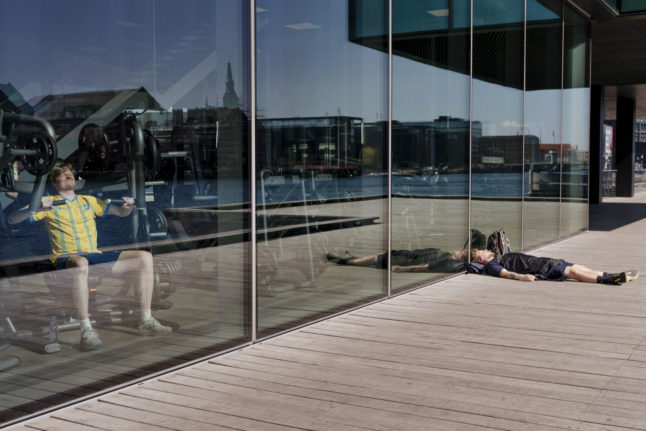Updated wage data to be used in work permit applications
Updated wage statistics will be used from October 1st when authorities assess Danish work permit applications.
When assessing applications for work permits under various programmes, the Danish Agency for International Recruitment and Integration (SIRI), which is responsible for processing work permits, uses income statistics to decide whether a job that has been offered is within the Danish standards for salary.
Danish work permit rules often require salary and other employment conditions offered to the foreign employee to be equivalent to those on the Danish labour market. This applies for first-time applications as well as for extensions.
READ ALSO: Work permits: What is Denmark’s ‘formodnings’ rule and how does it affect applications?
We have full detail about how salary data is used to assess work permit cases in this explainer.
Covid-19 and influenza vaccinations available at pharmacies
A new autumn vaccination programme becomes effective on October 1st, in which people over the age of 65 and others in certain risk groups can be given free vaccinations against Covid-19 and influenza at a large number of participating pharmacies.
Women in the thirteenth week or later of pregnancy are also offered vaccination under the scheme.
The same groups are at risk of more serious illness from both Covid-19 and influenza, according to the Danish Health Authority, which is therefore offering the vaccines alongside each other to the same people.
The influenza vaccine is meanwhile also available to people unable to work for health reasons (førtidspensionister) and children aged 2-6 years (in the form of a nose spray).
There’s no need to make an appointment and you can check which pharmacies are offering the services locally here. People outside of the free target groups can also receive the influenza vaccine at the price of 215 kroner.
READ ALSO: Denmark to offer Covid and influenza booster vaccines to over-65s
Lawmakers return as new parliamentary year kicks off
The new parliamentary year begins on October 3rd, meaning Danish lawmakers resume voting on and discussing law proposals in parliament.
Parliament is traditionally opened with a speech given by the prime minister – somewhat comparable to a US State of the Union speech – in which the PM gives her assessment of the situation of the Scandinavian nation as the new political year begins.
The speech is usually attended by the Queen and the rest of the Royal Family, who watch from the Royal Box in the Christiansborg parliament.
One of the first jobs for politicians this autumn will be discussion of the budget proposal put forward by the government in late August. Pensions, climate and mental health services are three areas where spending has been proposed, by parties outside of the government get the chance to have an input.
Once parties come to an agreement, a bill is tabled this month to begin its passage through parliament. All bills must pass through the chamber three times before a final vote, according to Danish law.
The budget is usually finally passed at the beginning of December, though this was not the case last year when it was delayed by the election.
READ ALSO: Why does Denmark reopen parliament at the start of October?
Autumn holiday and clocks go forward
This year’s autumn holiday (efterårsferie) falls from 14th to 22nd October, when schools across the country, as well as many workplaces particularly in industry, take the week off.
Many Danes spend time in summer houses during the autumn break as they enjoy the fall colours and last of the mild weather before winter hits.
It’s also worth keeping in mind that Denmark switches to winter time on October 29th, when clocks go back by one hour. It’ll be dark from late afternoon at that point but at least you’ll gain an extra hour of sleep before going to work the next day (which is a Monday).
READ ALSO: Whatever happened to the EU plan to ditch the changing of the clocks?
Change to winter tyres
There aren’t many traditions associated with the autumn holiday but it is the time of year when most car owners switch over to winter tyres.
Many motorists keep a second set of wheels with winter tyres in their basements or garages, or at “tyre hotels” in workshops who can also change the wheels and store the summer tyres in place of the winter set.
Winter tyres are not a legal requirement in Denmark but they are generally recommended, including by FDM, the membership organisation for motorists.
READ ALSO: How should you prepare your car for autumn (and winter) in Denmark?



 Please whitelist us to continue reading.
Please whitelist us to continue reading.
Member comments